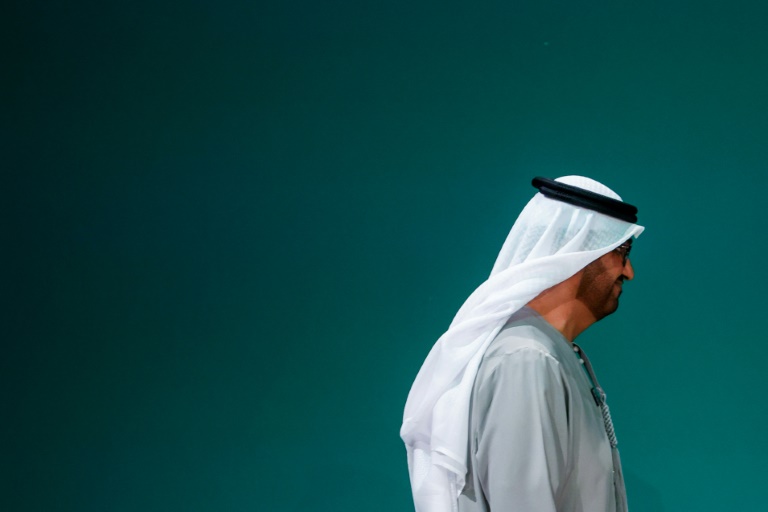UAE’s Jaber, oil boss who brokered ‘beginning of end’ for fossil fuels

Sultan Ahmed Al Jaber was initially a controversial choice for COP28 president
Dubai – Sultan Al Jaber, the UAE oil chief who headed COP28 in Dubai, promised that this year’s UN climate talks would be “different”. He did not disappoint.
The towering Emirati, 50, was beaming in his grey dishdasha after he brought down the hammer on the first United Nations agreement calling for a transition away from fossil fuels.
It ended a Conference of the Parties (COP) of contradictions in the oil-rich United Arab Emirates, which is one of the world’s biggest producers of crude.
Jaber is CEO of oil giant ADNOC as well as being the UAE’s climate envoy and minister of industry and advanced technology. He is also chairman of renewable energy company Masdar.
His naming as COP28 chief drew conflict-of-interest concerns at a time of increasingly stark warnings about the urgency of transitioning away from hydrocarbons to have a hope of keeping climate targets in view.
Dozens of US and European lawmakers said Jaber’s oil and gas links should disqualify him from the job. Hundreds of climate campaign groups called for him to quit either COP or ADNOC.
“COP28 is beset by a dark cloud of — entirely warranted — public scepticism,” US Senator Sheldon Whitehouse said at the time.
But Jaber will now claim vindication after presiding over a deal described by UN climate chief Simon Stiell as the “beginning of the end” for fossil fuels.
“Together, we have confronted the realities and we have set the world in the right direction,” Jaber told the cavernous auditorium on the outskirts of Dubai.
“We have given it a robust action plan to keep 1.5 within reach.”
– High stakes –
Before COP, Jaber was in less jubilant mood, bristling at accusations of a conflict of interest.
“I’m someone who spent the majority of his career in sustainability, in sustainable economic development and project management, and renewable energy,” he told AFP in July.
Indeed, he founded state-owned renewable energy company Masdar a decade before he took the helm of ADNOC with a mandate to “decarbonise” and “future-proof” the gas and petrol giant.
The stakes were exceptionally high for COP28.
The most ambitious goal of the 2015 Paris Agreement was to limit temperature rise to 1.5 degrees Celsius above pre-industrial levels, although UN climate experts warned this year that we are hurtling towards breaching that guardrail in the 2030s.
During months of frenetic travel that saw him criss-cross the planet, Jaber managed to win over some sceptics.
Harjeet Singh, of the influential coalition Climate Action Network International, said a turning point came in July, when Jaber wrote that “phasing down demand for, and supply of, all fossil fuels is inevitable and essential”.
“He’s very straightforward, he’s open to listening,” Singh told AFP, though the pair “agree to disagree” on several issues.
Those disagreements included the prominence given to fossil fuel lobbyists, whose accreditations numbered a record 2,456 in Dubai, according to campaign groups — more than every national delegation apart from the UAE and Brazil.
– Strong start –
Another point of difference was Jaber’s endorsement of controversial carbon capture technologies that trap emissions and store them permanently.
ADNOC made a commitment in July to achieve carbon neutrality by 2045 for its own operations.
But that target does not include emissions produced by the oil and gas burned by its customers, which account for the vast majority of its carbon footprint.
Jaber’s COP started strongly when he passed a landmark loss and damage fund on day one, when the two-week meeting had barely started.
Several pledges followed, including the UAE’s $30 billion private investment fund focused on climate projects in developing countries.
Talks then went into overtime, after a dispute over including “phasing out” or “phasing down” fossil fuels, before a compromise was struck and hastily passed on Wednesday.
